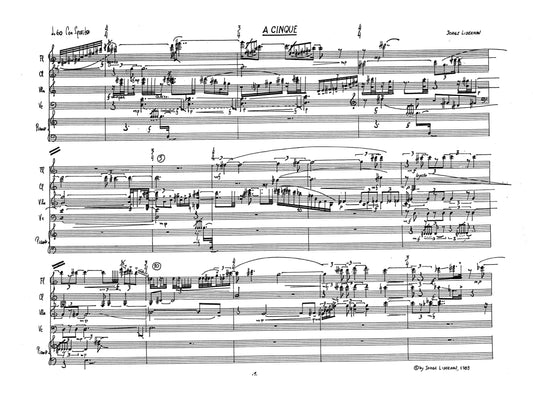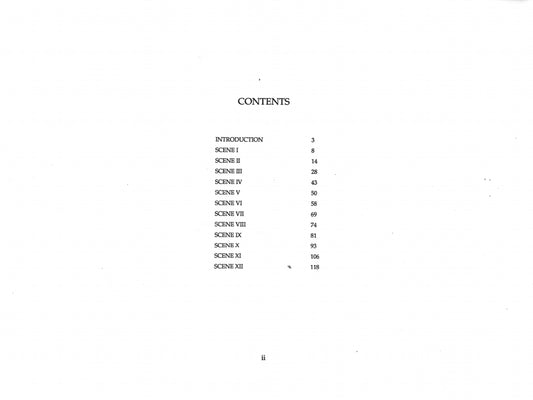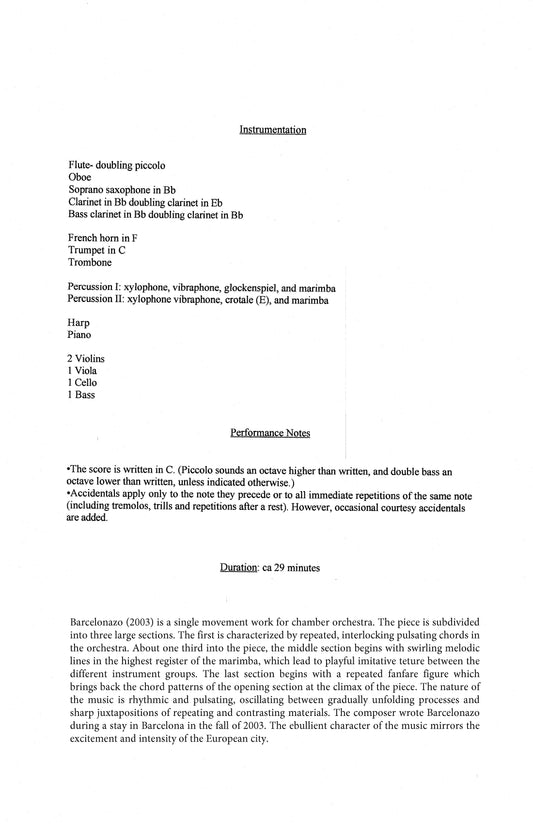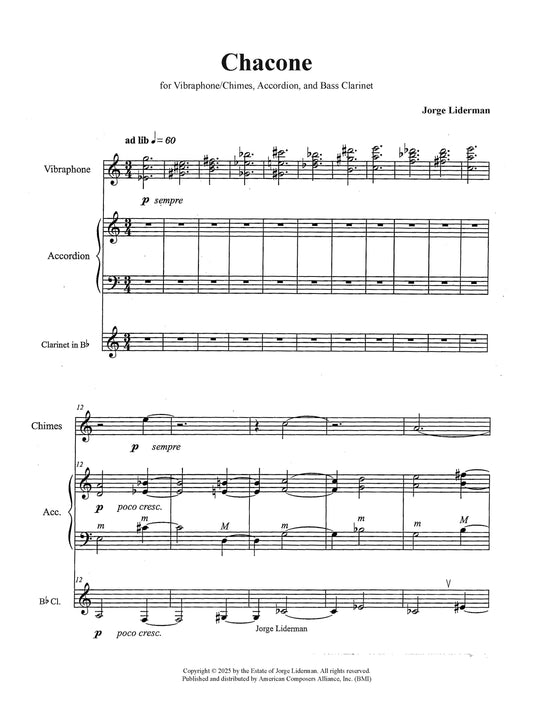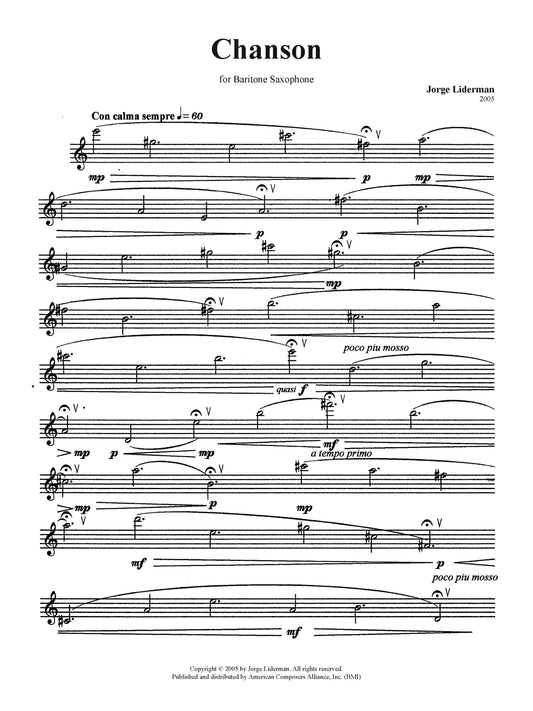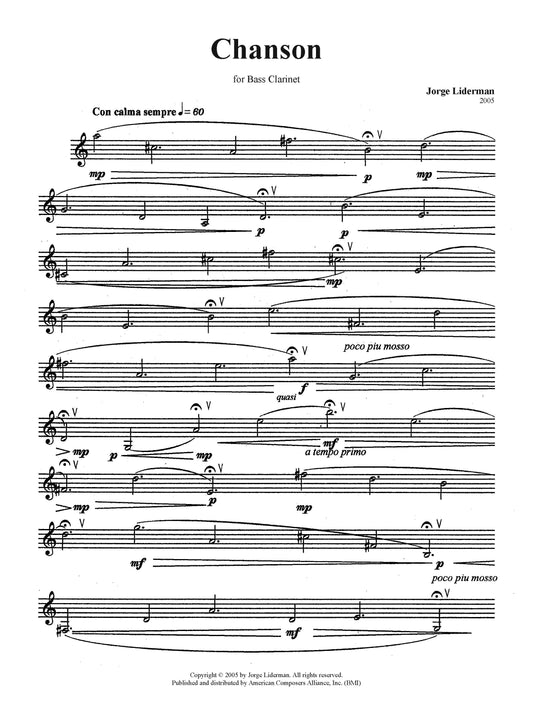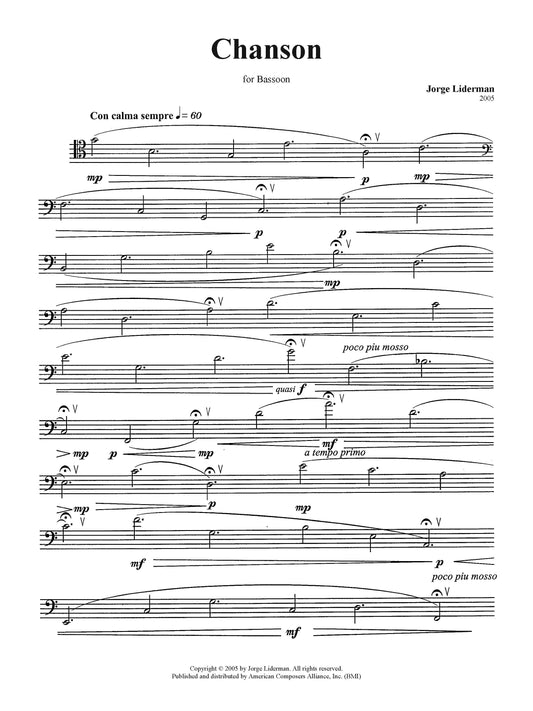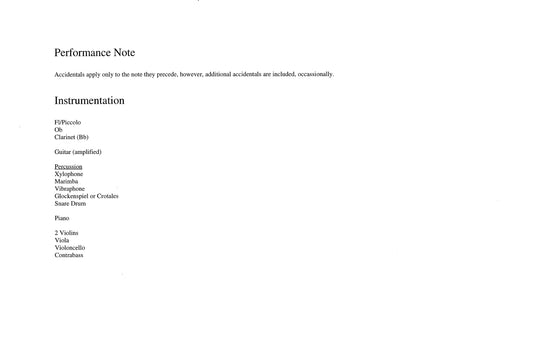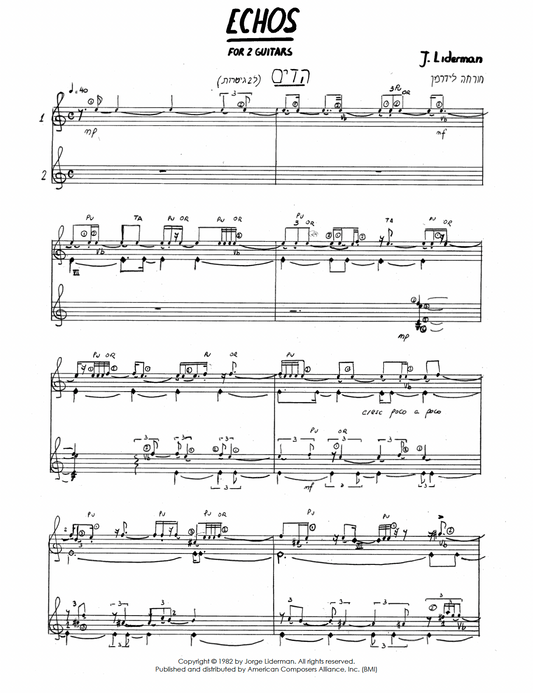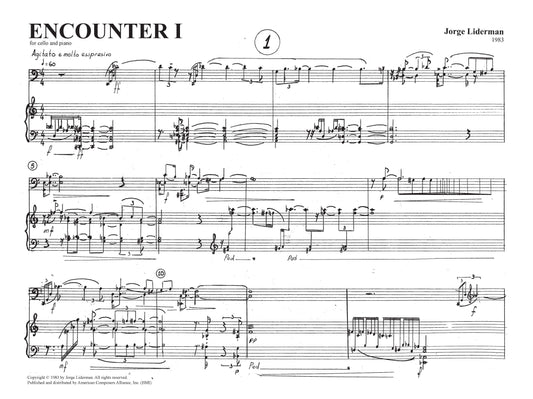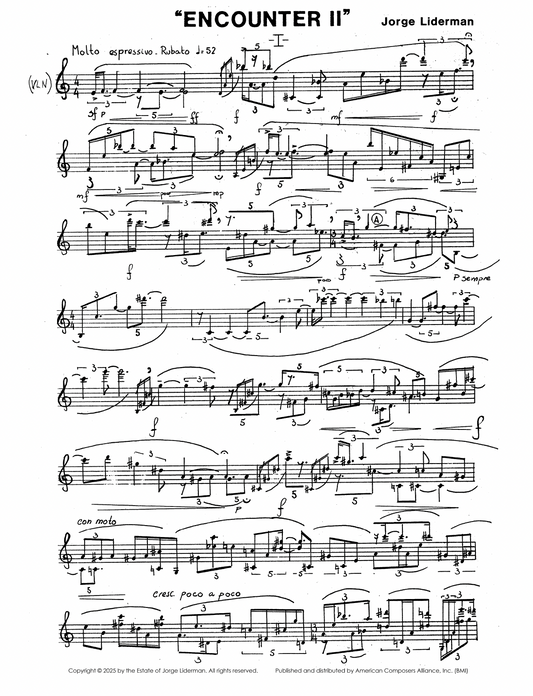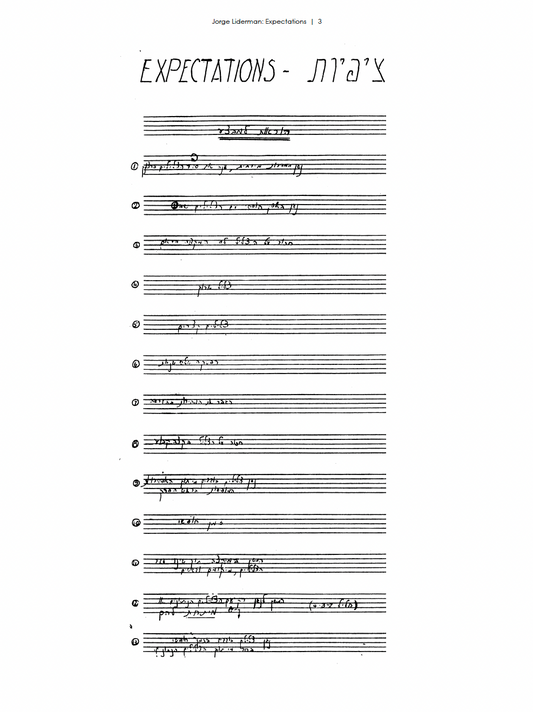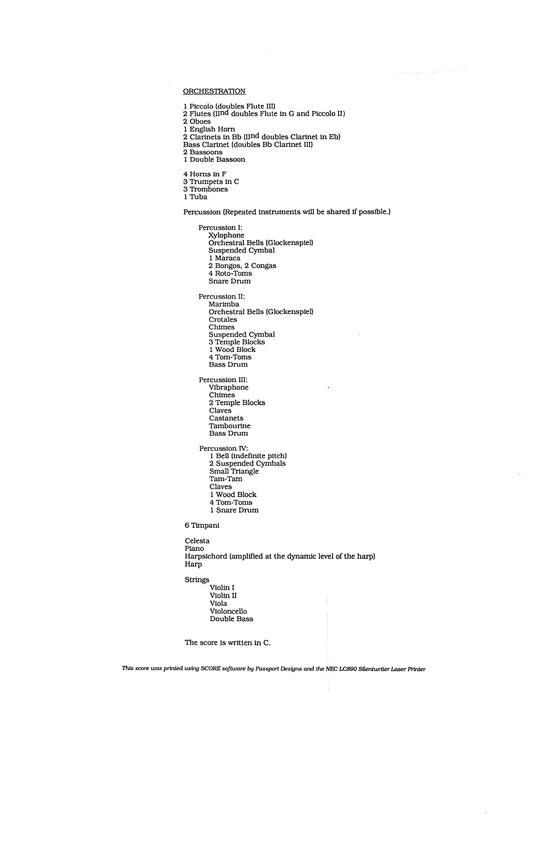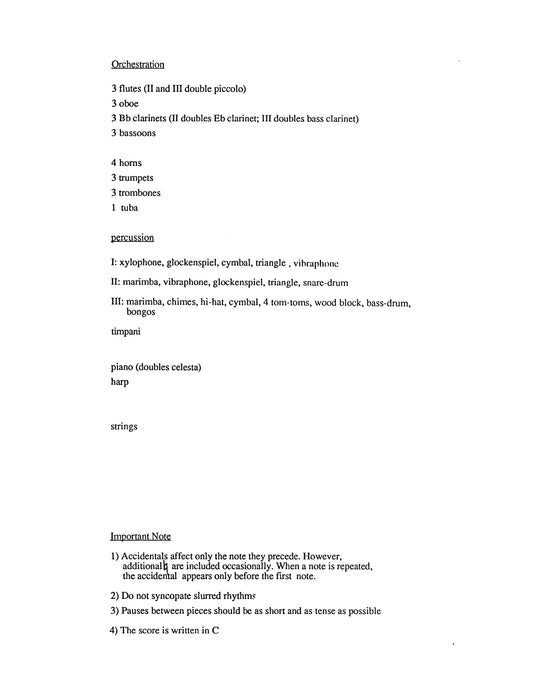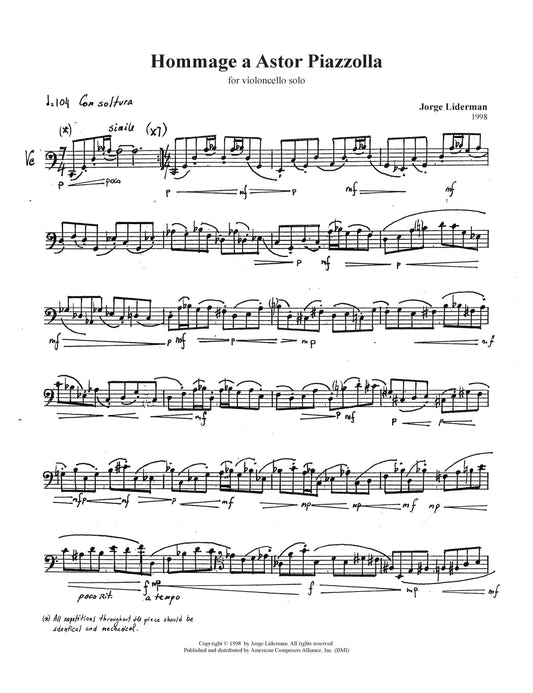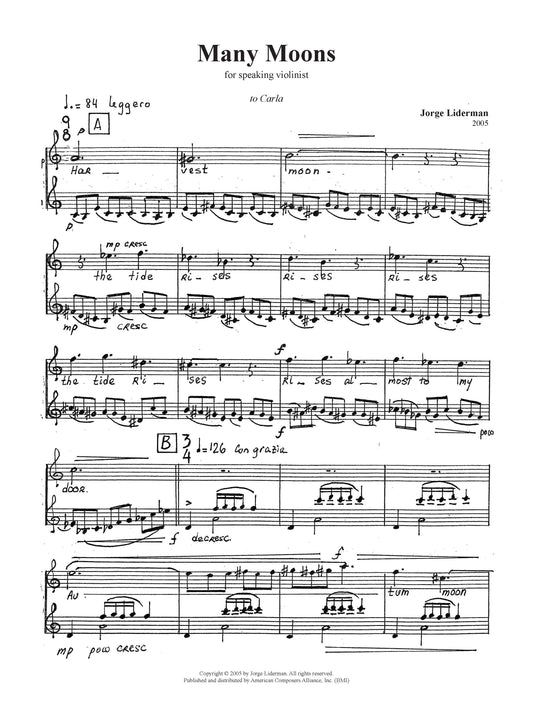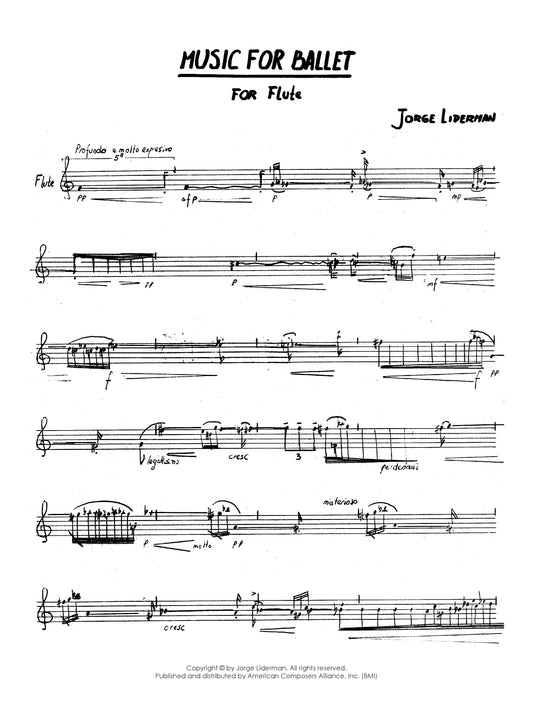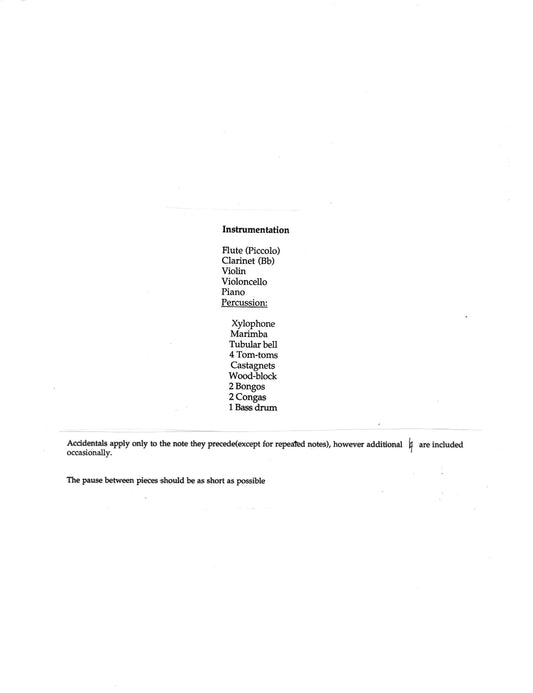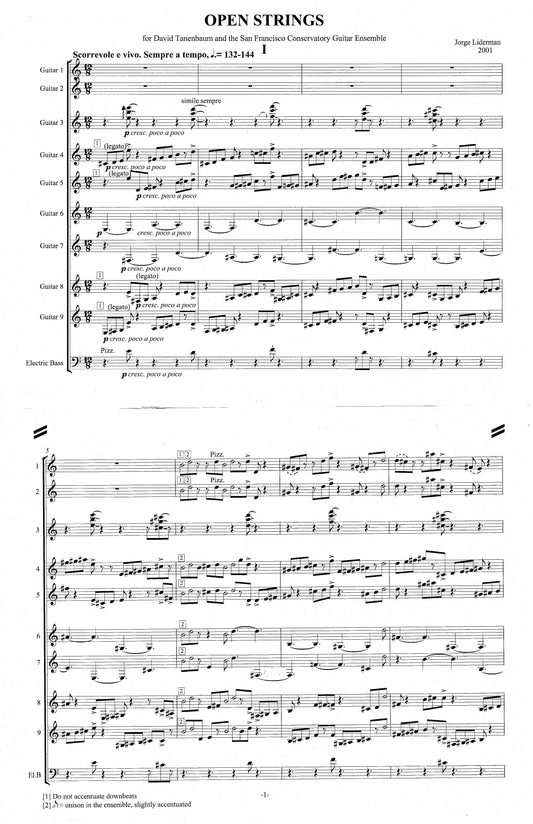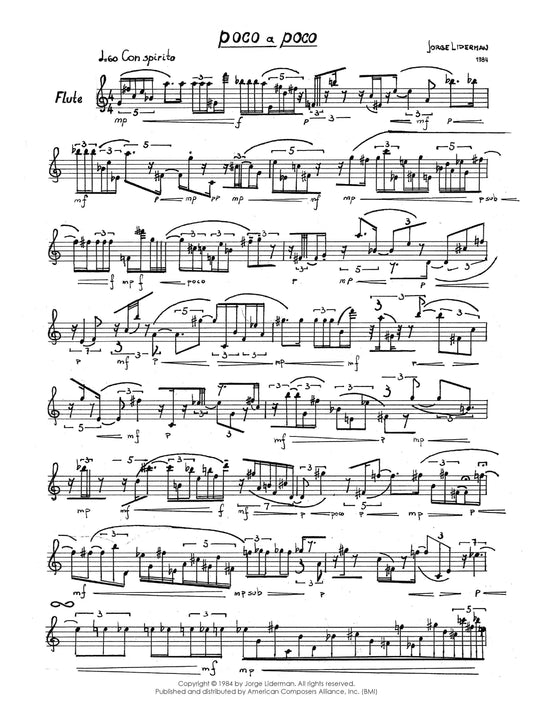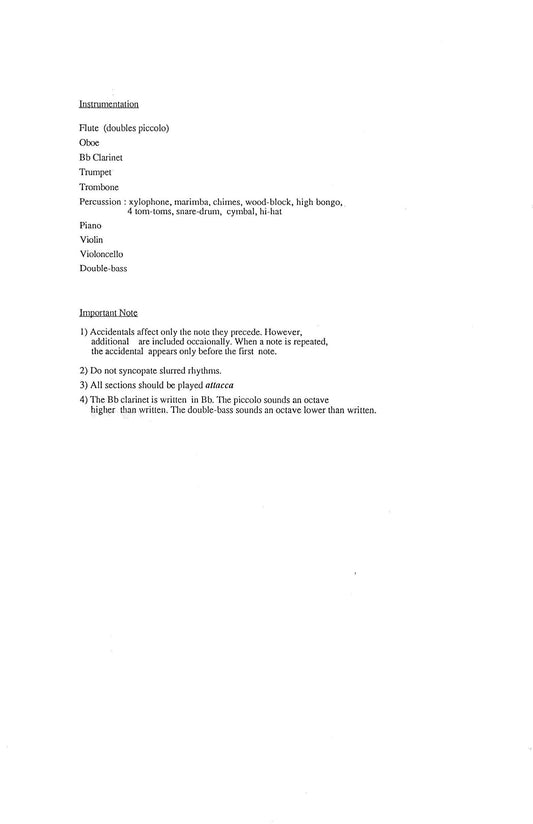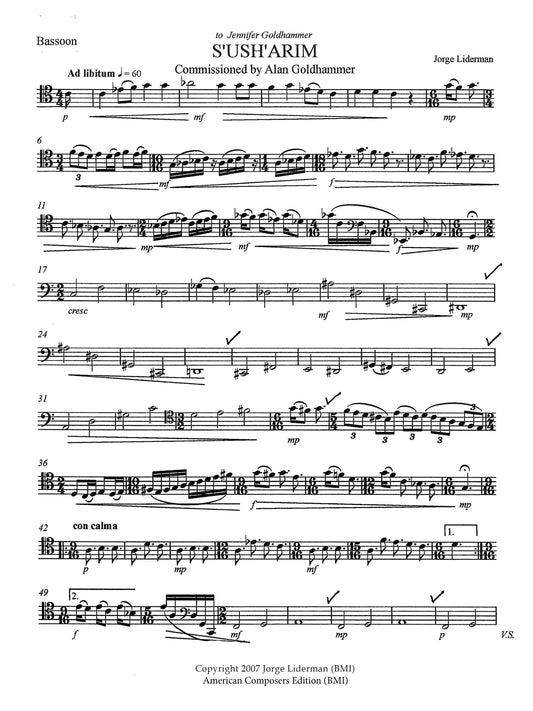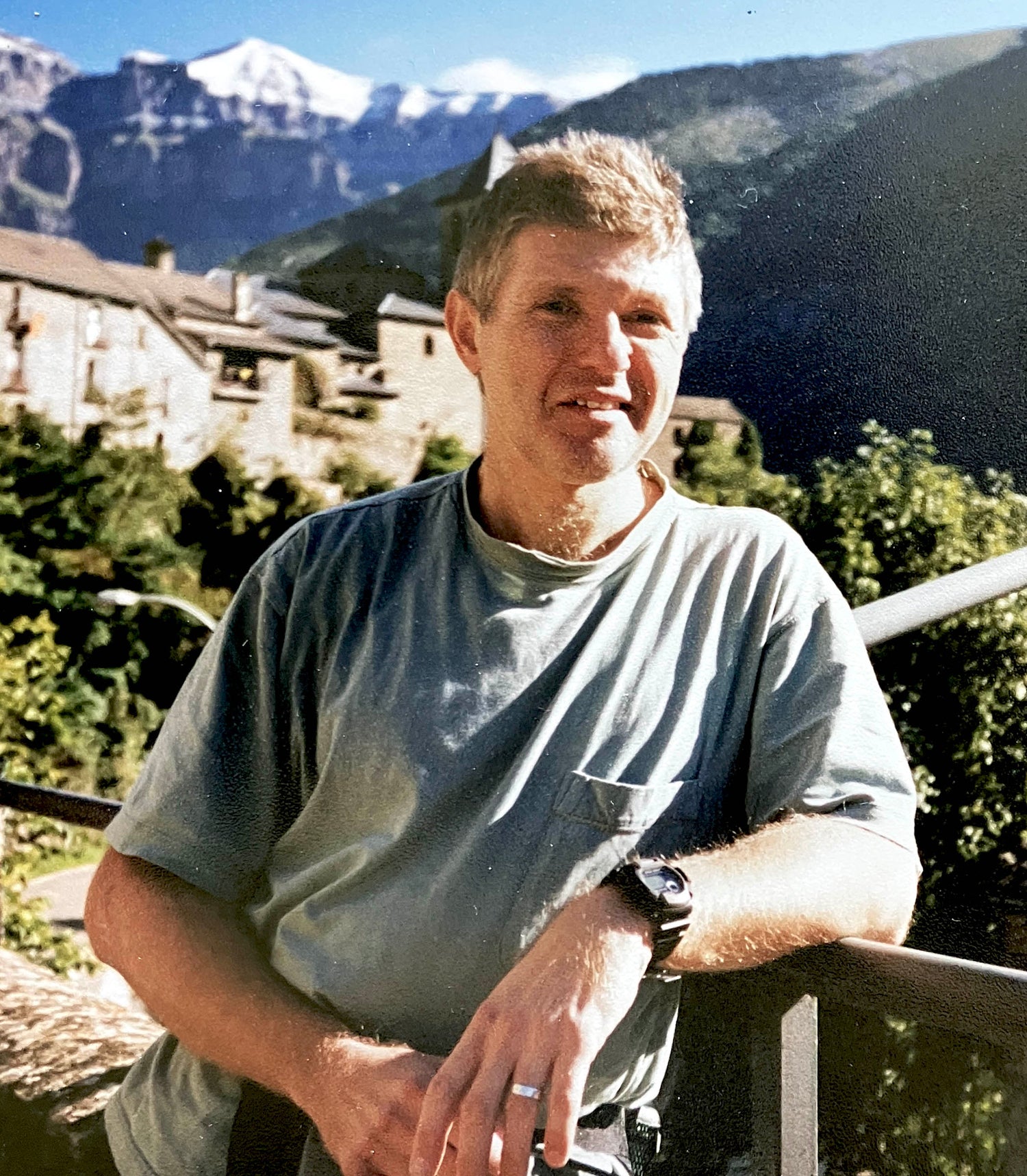
Liderman, Jorge
1957 - 2008
Jorge Liderman (1957-2008), renowned composer and professor of music at the University of California, Berkeley, was born in Buenos Aires, Argentina, on November 16, 1957. Liderman played classical guitar as a child and began his formal music training at the Rubin Academy of Music in Jerusalem, where he studied composition with Mark Kopitman. After receiving his B.M. degree with honors there in 1983, he continued his education at the University of Chicago, where he studied composition with Ralph Shapey and Shulamit Ran, earning the M.A. in 1986 and the Ph.D in 1988. He joined the Department of Music at UC Berkeley as an assistant professor in 1989.
Liderman used Argentine and Jewish elements in his music, and described his musical grandparents as Stravinsky and Bartók, and later, György Ligeti and Steve Reich. His music is characterized by both rhythmic drive and lyricism. Although it can be challenging to perform, his music is unusually accessible to the listener, who may find it to be imbued with elements of joy and exuberance. In his own words, “I think contemporary music has been divorced from the audience for quite a long time. We’ve been living in a ghetto of composers writing music for other composers.” By contrast, Liderman endeavored, he said, “to write music that is visceral, that can move you not just intellectually but also emotionally and physically. I think something has to grab you on a subconscious level in the music. In my case, it’s usually the music’s rhythm.”
His works have been commissioned and performed by the London Sinfonietta, the American Composers Orchestra, the Los Angeles Philharmonic, the Tanglewood Orchestra, Radio France, the New Century Chamber Orchestra, the Netherlands Wind Ensemble, the Nieuw Ensemble, the Arditti String Quartet, Cuarteto Latinoamericano, Boston Musica Viva, Milan Divertimento Ensemble, Chicago Pro Musica, Camerata de las Americas, Duo 46, Eastman Musica Nova, Earplay, Sequitur, and the San Francisco Contemporary Music Players, as well as by individual artists Oliver Knussen, Diego Masson, Esa-Pekka Salonen, David Tanenbaum, Carla Kilhstedt, and Gloria Cheng. Liderman’s music has been featured at prestigious new music festivals such as Darmstadt, Nuova Consonanza, Stuttgart’s Neue Music, Semaines Musicales Internationales d’Orléans, Mexico’s Foro Internacional, London’s Viva, Osaka’s Expo 90, the International Rostrum of Composers, Paris, and Holland’s Proms, among others, and his works are recorded on CRI, Cadenza, ERM, Albany, and Bridge Records.
Liderman’s opera, Antigone Furiosa, was written at the request of Hans Werner Henze. A setting of playwright Griselda Gambaro’s surrealistic version of Sophocles’ Antigona, it received the 1992 BMW International Music Theater Prize in conjunction with the Third Munich Biennale, and was the subject of a German television documentary.
In 2002, Liderman composed an hour-long, three-part cantata, Song of Songs, using Chana and Ariel Bloch’s new English translation of the famous love poem in the Hebrew Bible. The piece was premiered by the San Francisco Contemporary Music Players and the UC Berkeley Chamber Chorus at Cal Performances. He said of this work, “The passionate intensity of the Blochs’ translation, its richly sonorous language and strong supple rhythms, clearly invited a musical setting.” He was struck “by the joy, warmth and color of the Song—the passion of young love, the exhilaration of a first sexual encounter, the blossoms, spices and bird songs of springtime. These impressions translated themselves almost immediately into song...”
In 2007, San Francisco’s New Century Chamber Orchestra performed the world premiere of Liderman’s Rolling Springs; the violin-guitar Duo 46 presented Aires de Sefarad at the Jewish Music Festival; and Cal Performances at UC Berkeley presented a 50th birthday concert of Liderman’s chamber works, performed by Sonia Rubinsky, piano; Cuarteto Latinoamericano; David Tanenbaum, guitar; and the Berkeley Contemporary Chamber Players. A day after his death, his chamber concerto Furthermore, written for violinist Carla Kihlstedt and the San Francisco Contemporary Music Players, was premiered at the Yerba Buena Center for the Arts in San Francisco.
Liderman received honors and awards from the American Academy of Arts and Letters, the Guggenheim, Fromm, Harper, and Gaudeamus foundations, the University of California President’s Fellowship, the MacDowell Colony, the Tanglewood Music Center, and the Argentine Tribune of Composers.
Liderman mentored a generation of composers who passed through UC Berkeley’s music department. Of his teaching, he said: “The challenge of a composition teacher is to try to understand what the student is trying to do and help them to do it in the best possible way—sometimes even making them aware of what they are trying to do in the first place.” Liderman’s office door was literally always open, and between classes or composition lessons he composed constantly. In addition to his composition classes, Liderman taught harmony, counterpoint, fugue, and contemporary music.
Liderman served on the Cal Performances Advisory Board, the UC Intercampus Arts Committee, the University Athletics Board Committee, and the Committee on International Education. Within the music department, he organized composition colloquia, planned the visit of composer and Regents’ Lecturer Steve Reich to Berkeley, and served as chair of the Bloch Professor committee.
An avid bicyclist, Liderman was always in top physical condition. He enjoyed cooking and entertaining, art, travel, and international affairs. He was a kind soul, always available for a cup of coffee and an encouraging word.
-- Christy Dana


